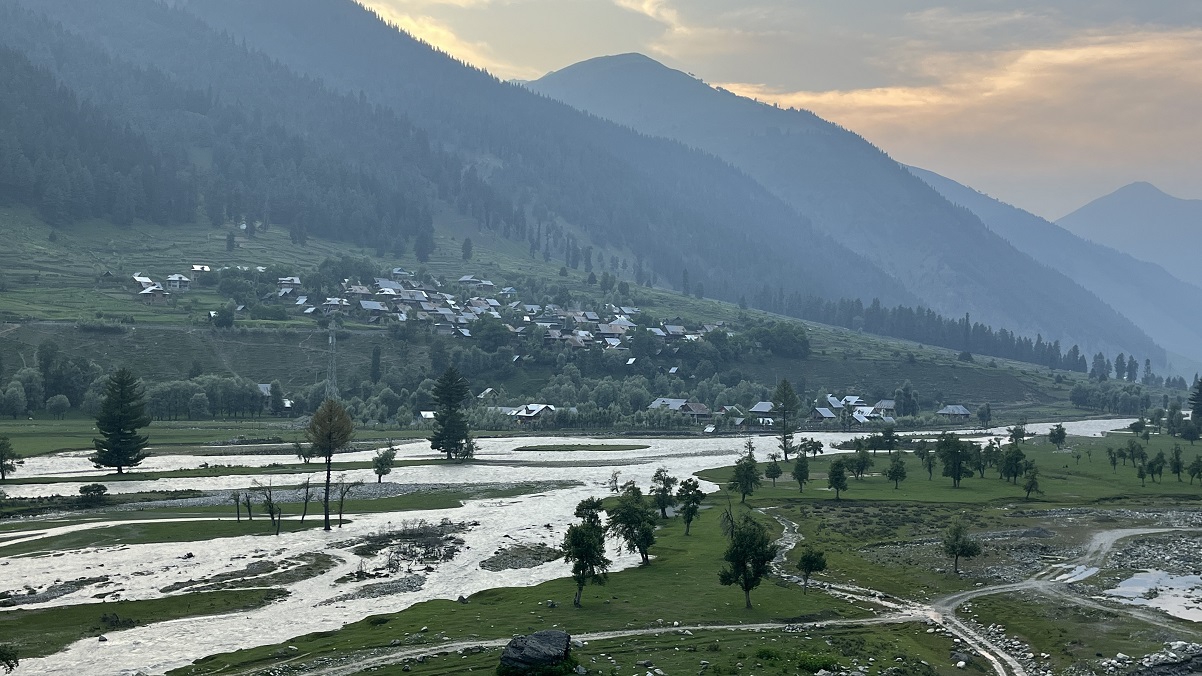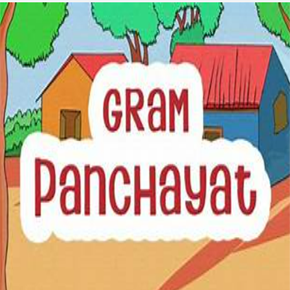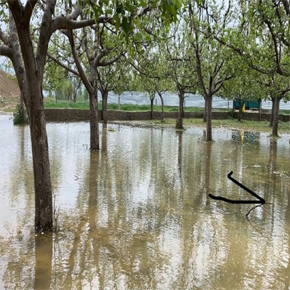I recently visited Warwan valley, tucked deep in the Marwah subdivision of Kishtwar district. Although it’s in the Jammu division, the road to Warwan passes through Anantnag in Kashmir, going via Kokernag, Vailoo, Matigawran, and the beautiful Margan Top.
It’s a long journey, but the moment I stepped into the valley, I felt I had entered a forgotten world.
Warwan has around 14 villages, home to ethnic Kashmiris who have lived there for at least two centuries, probably more.
Local sources estimate the population is about 14,000 today, nearly a 50% increase from the 2011 census.
Though it was granted tehsil status some years ago and falls under the Inderwal assembly segment, you wouldn’t know it from the condition of the place.
There’s no direct road from Kishtwar to Warwan, even though it’s only 68 kilometers away. The Marusudar river flows through the valley, born from the Batkot and Gumbar streams. It’s one of the most important right-bank tributaries of the Chenab.
The water is pure, the air crisp. But everything else, like basic healthcare, sanitation, electricity, internet, is either broken or missing altogether.
You wouldn’t think this place had been part of India’s “Digital India” campaign.
Villagers I spoke to had never heard of Swachh Bharat Mission Gramin, PM-Kisan, or Deen Dayal Upadhyaya Gram Jyoti Yojana.
Funds meant to preserve cultural heritage seem to vanish before reaching the valley. There’s so much potential here, for adventure tourism, hydropower, and medicinal plant farming.
And yet, it feels like the place has been written out of every planning document.
What hurt the most was seeing the traditional wooden and mud homes being pulled down and replaced with concrete blocks. Some of these old houses and mosques are over half a century old, and they’re stunning. Tourists would love them, especially international travelers.
But nobody’s guiding or helping the locals to preserve them. There’s no heritage conservation board, no incentives, not even awareness. The local officials don’t seem to realize what’s being lost.
Then there’s the garbage.
It’s creeping in from all sides: visitors bringing plastic, shops selling packaged junk, locals tossing waste into the open. Places like Margan Top, once pristine, are now dotted with litter.
I tried talking to a few shopkeepers, asking them not to bring in so much packaged stuff, but most of them didn’t see the problem.
Local officials could easily step in and ban single-use plastics here, but that would require both vision and will.
Sanitation, too, is a disaster. For the last few years, the Rural Development Department has been responsible for managing rural waste in J&K. Gram Panchayats are supposed to team up with NGOs and SHGs to run solid and liquid waste programs. That’s the theory.
In practice, I didn’t see a single compost pit or soakage pit in any of the five or six villages I visited. Not even one. No waste collection trucks either, despite road access to most villages now.
The government gives Rs 5,500 for compost pits and Rs 11,300 for soakage pits under Swachh Bharat. But in Warwan, no one seems to know these funds exist. The money is being spent, somewhere. But not here.
And then there are Chopans, Kashmiri shepherds who’ve always lived close to the land. They don’t own livestock themselves, but they graze the sheep of others across high-altitude meadows.
After Article 370 was abrogated, many of them hoped the Forest Rights Act would finally give them legal access to the pastures they’ve used for generations. That hasn’t happened.
Instead, private individuals are encroaching on the land and renting it out to outsiders. The government has done little to protect the Chopans or even recognize their existence.
This isn’t just Warwan’s story. It’s the story of many virgin destinations in J&K that are being overlooked or mishandled.
Over the last few decades, the state has created a string of tourism development authorities. But what places like Warwan, Marwah and Gurez need now are Conservation Authorities. Because the damage we’re doing isn’t reversible.
If we don’t act, Warwan will soon be a case study in how to ruin paradise. I hope the administration, especially Chief Minister Omar Abdullah, pays attention before it’s too late.

























































































